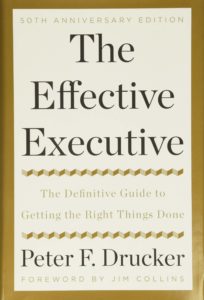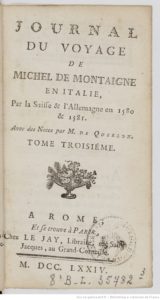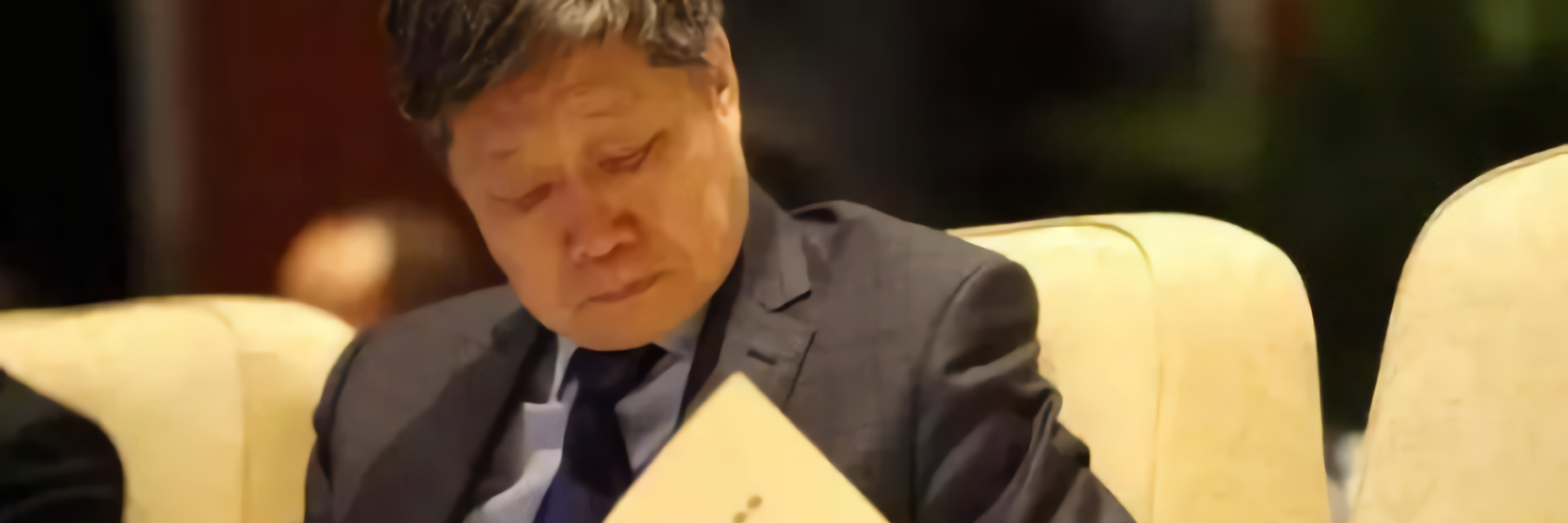The founder of Chinese appliance giant Haier, Zhang Ruimin, is sometimes called the “philosopher boss”. Indeed, he has always shown a strong interest in philosophical reflection on various subjects. His interests are manifold: Western philosophy, Chinese wisdoms, fundamental physics… However, born in the same year as the People’s Republic of China, in 1949, in a working class family, nothing predisposed him to immerse himself in books. Nothing, except for an unquenchable thirst for learning. Such was his eagerness that he would ride his bike for an hour every day to and from his factory to take management courses.
Western-inspired management thinking
In 1984, a decrepit refrigerator factory was entrusted to Zhang Ruimin by the Qingdao municipality, which was desperate to find someone to save it. Zhang used Western management methods, then little known in China, to turn it around. At that time, he was particularly impressed by Peter Drucker‘s book, The Effective Manager. He drew from it two key ideas at the heart of the empire he was to build over the next 40 years: companies are there to create customers, and therefore to serve them, through quality products and services; employees must not be mere executors, but individuals capable of making decisions.

Zhang did not only get acquainted with Western managerial thinking through books. Shortly after his appointment as head of Qingdao Refrigerators, he was able to learn more about this thinking during a trip to Germany to visit the factories of his company’s new partner, Liebherr. This trip played for him a role similar to that of French author Montaigne’s travels in the 16th century. By “rubbing and polishing his brains” with those of other executives and factory managers, he was able to better understand their methods, and to take a more lucid look at the Chinese particularities.

Back to Chinese wisdom
Zhang Ruimin has also drawn on the sources of various Chinese wisdoms to shape Haier’s management model, rendanheyi. The influence of Taoism particularly stands out. To pick just one example, the freedom given to employees to self-organize, to the point of having transformed Haier into a myriad of autonomous microenterprises, is not unlike the Taoist principle of wu-wei (无为) or “non-action.” Schematically, this principle is to say that one should refrain from interfering with the natural flow of things. In a way, this is what we find in rendanheyi, which postulates that each employee must be free to behave like an entrepreneur, and that neither hierarchy nor bureaucracy should hinder him or her.
Towards new paradigms
In recent years, Zhang Ruimin has taken a keen interest in the discoveries of quantum mechanics, seeing them as a source of valuable analogies for management. Thus, Zhang’s radical decision in 2005 to transform Haier into a collection of 2,000 autonomous units (自主经营体, Zìzhǔ jīngyíng tǐ or “ZZJYT”) can be viewed in light of the quantum principle of wave-particle duality. Indeed, the ZZJYTs can be seen from two perspectives: on the one hand, they are Haier’s smallest elementary components, in the manner of particles; on the other hand, they are all drawn to cooperate, transmitting Haier’s entrepreneurial culture in the manner of a wave.
“Think of waves inside organizations. They are like ideas that spread between people and teams. Ideas that resonate together can be more powerful, and in time they characterise a culture, a common way of thinking and doing things. Haier is many businesses but one brand.”
Zhang Ruimin, interview with Peter Fisk
What can we learn from this importance of reflection and reading for Zhang Ruimin? He has drawn energy from these activities to continually transform Haier, drawing on Western thought and Chinese wisdom to create a new managerial paradigm that can be seen as “quantum management”. In doing so, Zhang Ruimin has acted more like a visionary than a manager, propelling his company to the top of its industry.
A graduate of HEC Paris and CentraleSupélec, Jérôme Delacroix began his career at management and organizational consulting giant Accenture, before turning to marketing, writing and entrepreneurship.
Jérôme has been to China more than 12 times and is learning Mandarin Chinese. He hosts a YouTube channel dedicated to the Internet in China.

